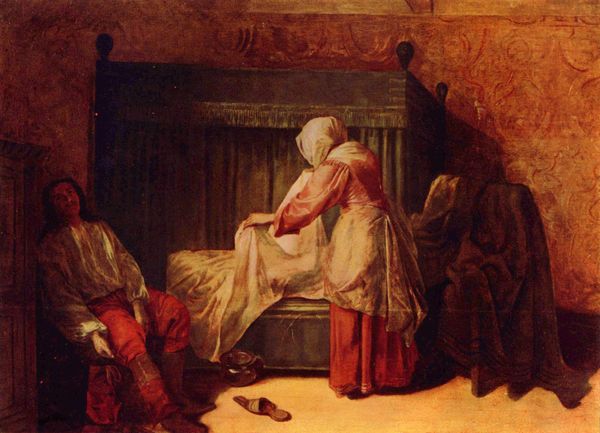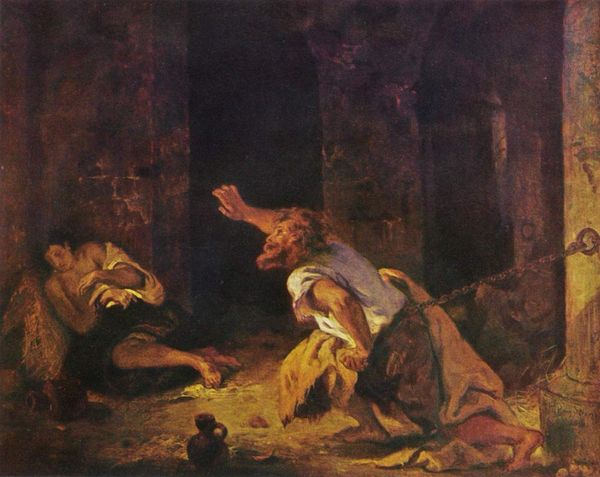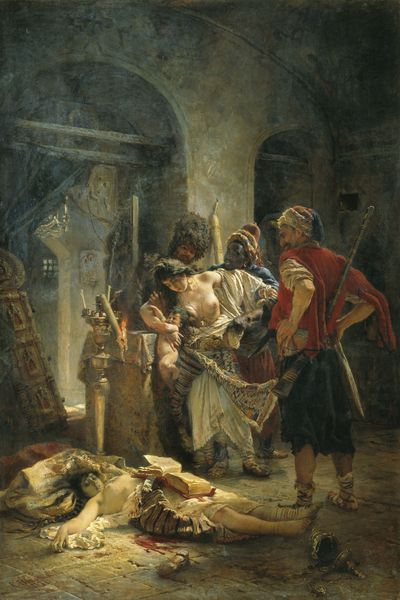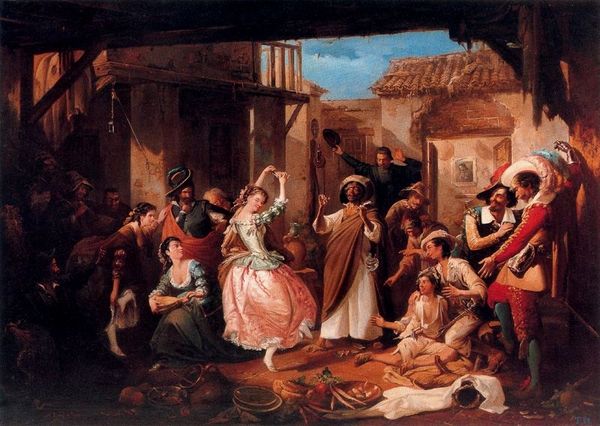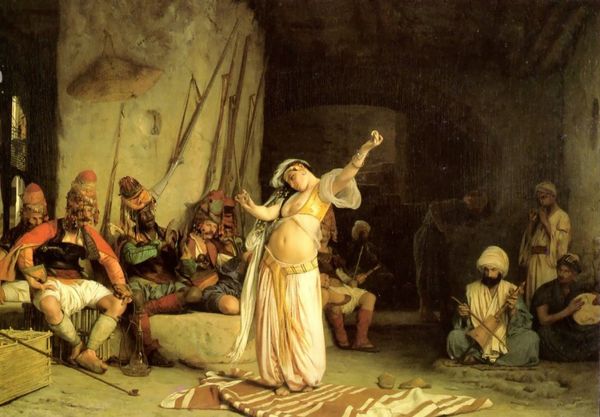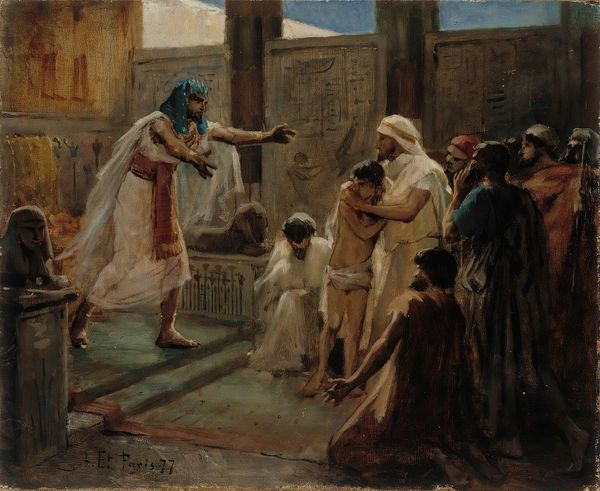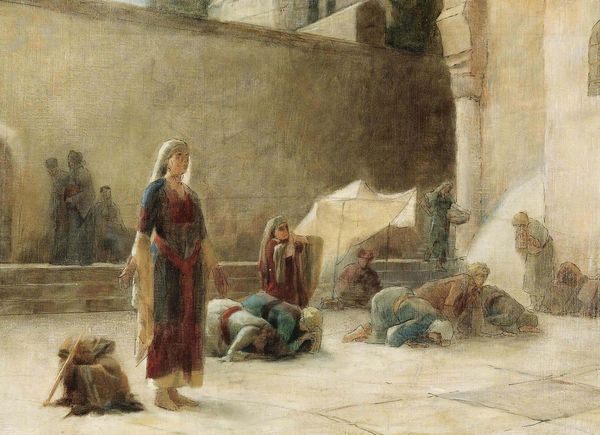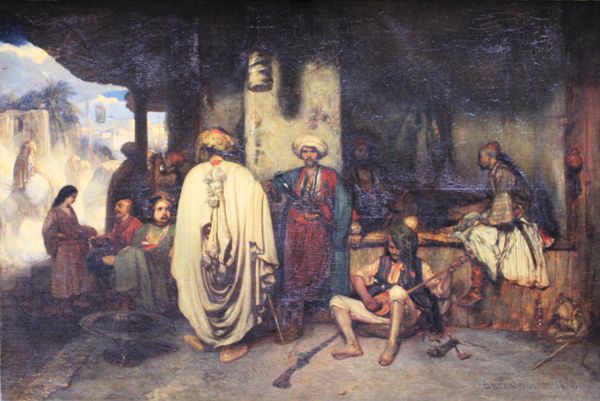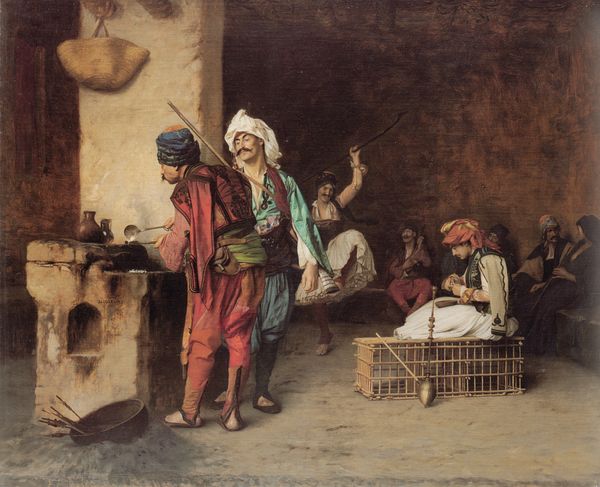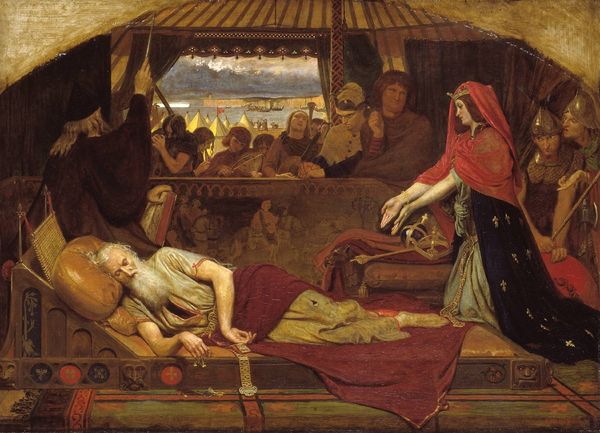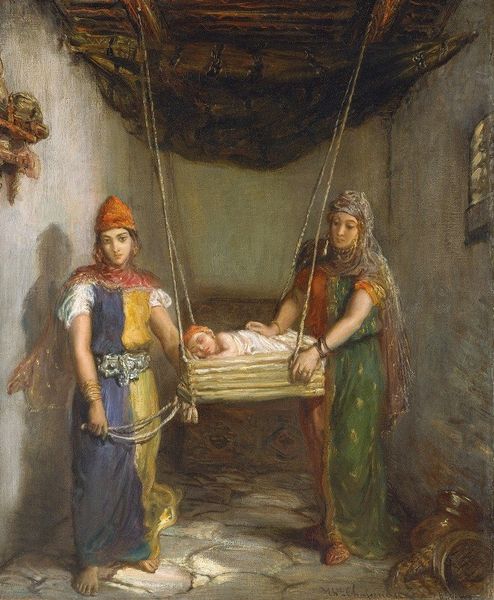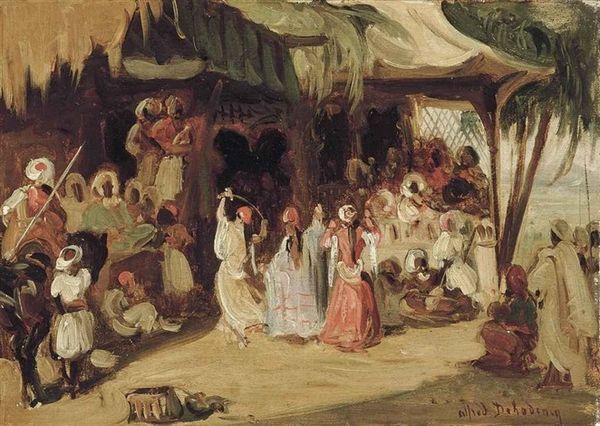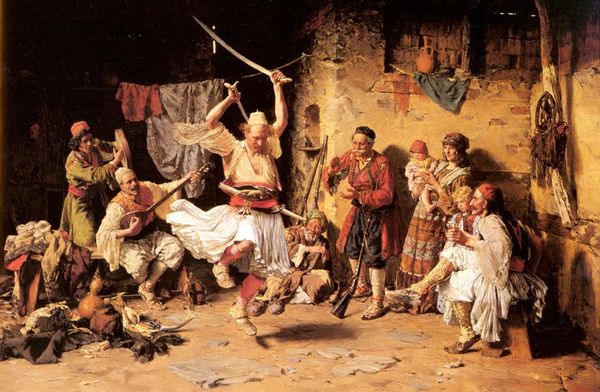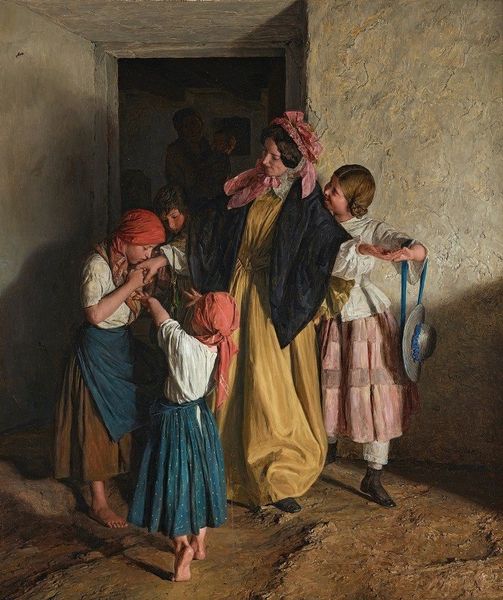
painting, oil-paint
#
portrait
#
gouache
#
painting
#
oil-paint
#
figuration
#
oil painting
#
romanticism
#
orientalism
#
genre-painting
#
mixed media
#
watercolor
Copyright: Public domain
Théodore Chassériau painted "Moorish Dancers" in the mid-19th century, an era when European artists frequently depicted scenes from North Africa. The painting presents two women dancing in what appears to be a private, domestic setting, surrounded by onlookers. This imagery reflects the Orientalist fascination prevalent in France at the time, which often exoticized and eroticized the "East." Consider, for example, the French colonial presence in Algeria, begun in 1830, which heightened interest in North African culture. These factors framed the way French artists perceived and portrayed the region. Chassériau never actually visited Algeria, so his understanding of the location in this image was filtered through a European lens. To fully grasp the painting's historical meaning, we might turn to sources such as travel literature, colonial documents, and art criticism from the period. These resources help us understand the complex relationship between artistic representation, colonial power, and cultural exchange.
Comments
No comments
Be the first to comment and join the conversation on the ultimate creative platform.
